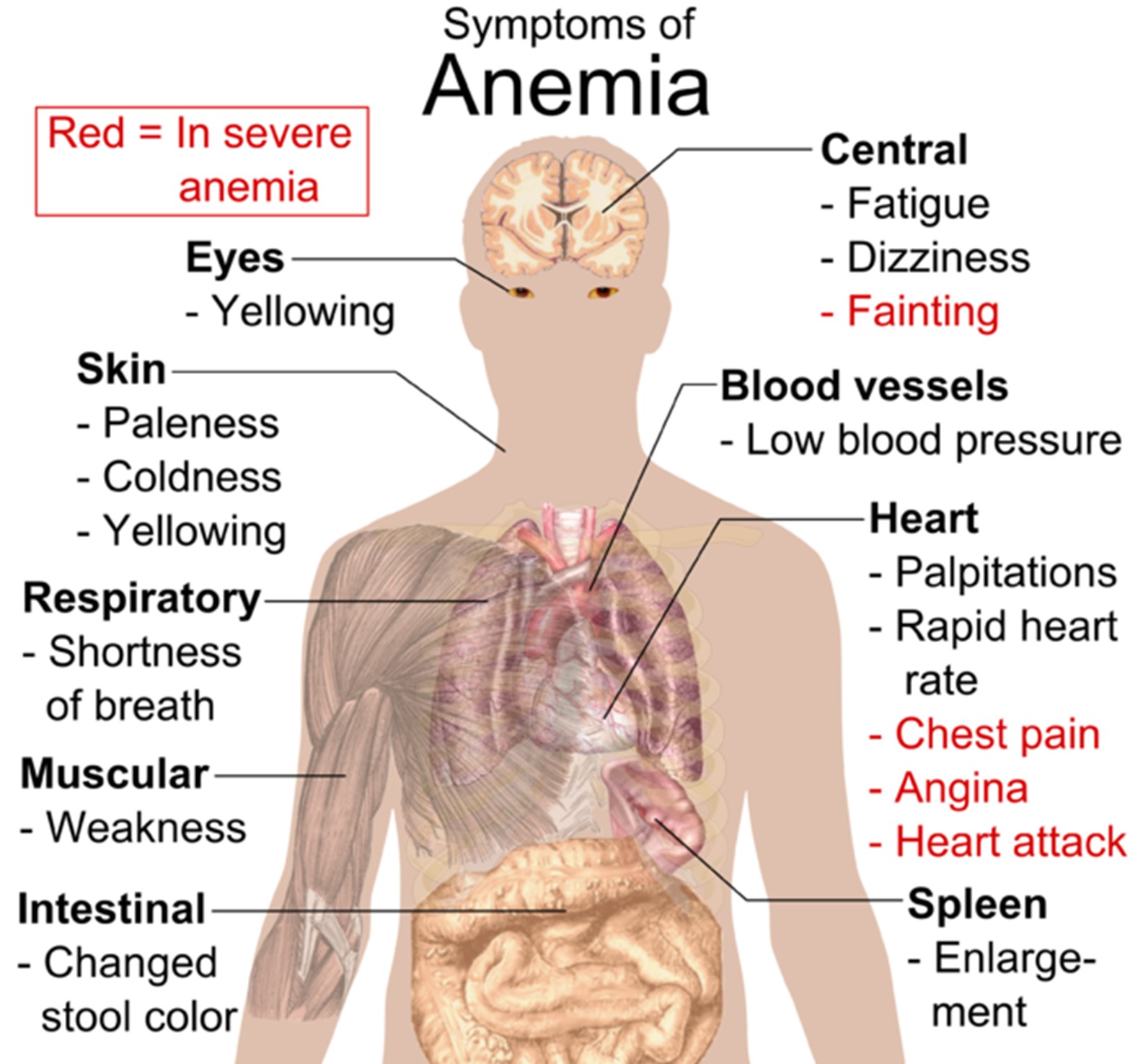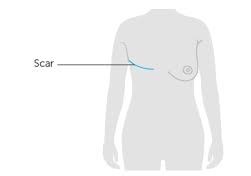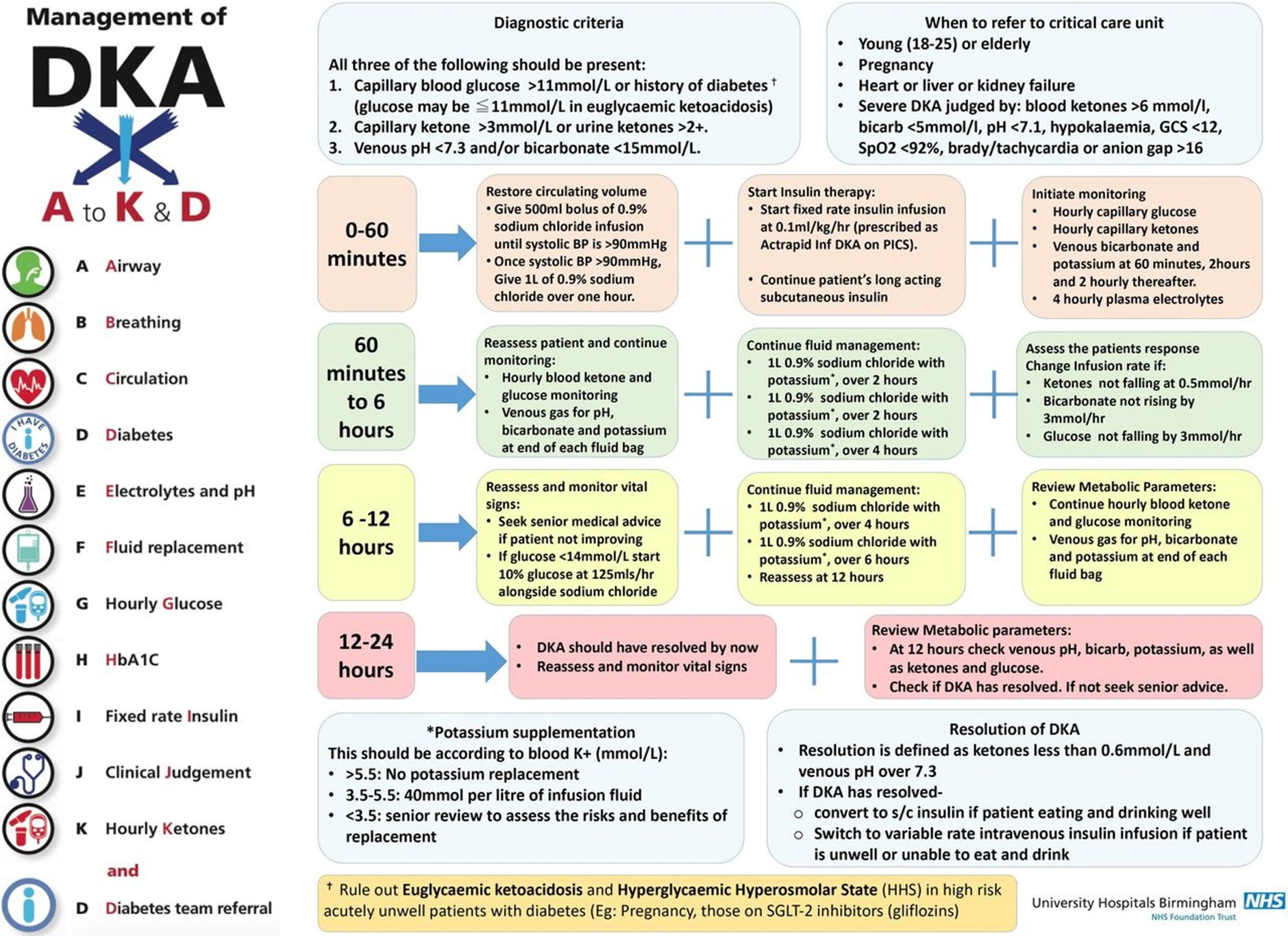A nurse is caring for a client who has anemia. Which of the following assessment findings should the nurse anticipate with the client's condition?
Bradycardia
Headache
Flushed skin color
Heat intolerance
The Correct Answer is B
Choice A reason:
Bradycardia is incorrect. Bradycardia refers to a slow heart rate, and while anaemia can lead to an increased heart rate (tachycardia) as the body tries to compensate for the decreased oxygen levels, it is not typically associated with bradycardia.
Choice B reason:
Headache Anaemia is a condition characterized by a decreased number of red blood cells or a decrease in the amount of haemoglobin in the blood, leading to reduced oxygen-carrying capacity. This can result in decreased oxygen delivery to various tissues and organs, including the brain. As a result, clients with anaemia often experience symptoms such as fatigue, weakness, and headaches.
Choice C reason:
Flushed skin colour - Anaemia is more likely to cause paleness of the skin (pallor) due to the decreased haemoglobin levels, rather than flushed skin colour.
Choice D reason:
Heat intolerance - Heat intolerance is not a typical symptom of anaemia. It might be seen in conditions affecting the thyroid or related to hormonal imbalances, but it is not directly related to anaemia.

Nursing Test Bank
Naxlex Comprehensive Predictor Exams
Related Questions
Correct Answer is B
Explanation
Choice A Reason:
"I can give you a list of other people who had the same procedure." - This response might not address the client's concerns and could potentially violate privacy and confidentiality.
Choice B Reason:
"I can give you additional information about the procedure." Response B is an appropriate and supportive response. The client is expressing uncertainty about the mastectomy, so offering more information about the procedure can help the client make an informed decision. Providing accurate and detailed information allows the client to better understand their options and the potential benefits and risks of the procedure.
Choice C Reason:
"You will be cancer-free if you have the procedure." - Making a guarantee of being cancer-free after the procedure might be misleading and overly optimistic. While a mastectomy can treat cancer in some cases, it's important to provide realistic information.
Choice D Reason:
"You should get a second opinion regarding the procedure." - While seeking a second opinion can be valuable, this response might not directly address the client's immediate concerns about the procedure. Providing information first and then discussing the option of a second opinion might be a more balanced approach.

Correct Answer is A
Explanation
Choice A reason:
Initiating a continuous IV insulin infusion is the first priority. The priority intervention for a client in diabetic ketoacidosis (DKA) is to normalize blood glucose levels and reverse the ketoacidosis. Initiating a continuous IV insulin infusion is essential to rapidly lower the elevated blood glucose levels and counteract the metabolic acidosis associated with DKA.
Choice B reason:
Beginning a bicarbonate continuous IV infusion is generally not the priority in DKA management. While metabolic acidosis is a concern in DKA, insulin therapy and fluid resuscitation are typically the initial focus of treatment.

Choice C reason:
Checking potassium levels is important since potassium imbalances are common in DKA. However, while this is important, it is not the first priority. It's important to ensure that insulin therapy has been initiated before addressing potassium levels.
Choice D reason:
Administering 0.9% sodium chloride (normal saline) is a crucial part of DKA treatment but it is not the first priority as it helps correct dehydration and electrolyte imbalances. However, starting insulin therapy to address the underlying metabolic issue takes precedence.
Whether you are a student looking to ace your exams or a practicing nurse seeking to enhance your expertise , our nursing education contents will empower you with the confidence and competence to make a difference in the lives of patients and become a respected leader in the healthcare field.
Visit Naxlex, invest in your future and unlock endless possibilities with our unparalleled nursing education contents today
Report Wrong Answer on the Current Question
Do you disagree with the answer? If yes, what is your expected answer? Explain.
Kindly be descriptive with the issue you are facing.
